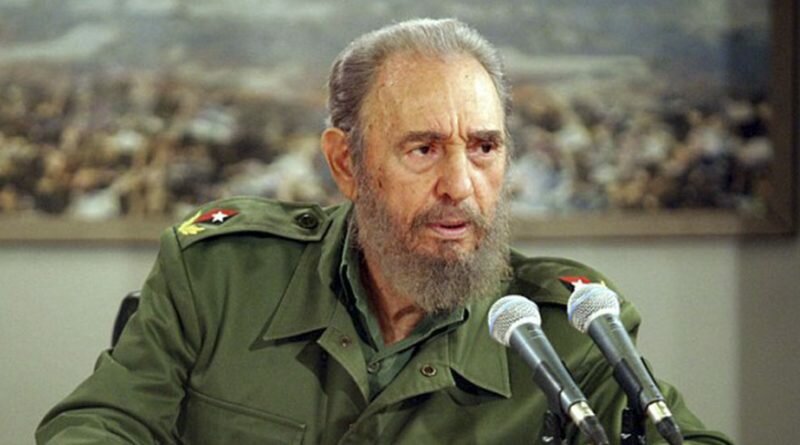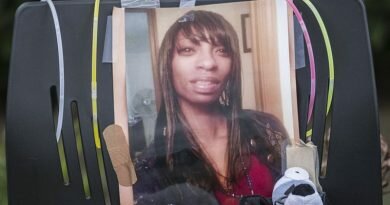Black Revolutionaries Supported By Fidel Castro
Fidel Castro continues to be remembered by Black Americans for his relentless assistance for some Black revolutionaries.
Fidel Alejandro Castro Ruz was a Cuban politician and revolutionary who governed the Republic of Cuba for 47 years as Prime Minister from 1959 to 1976 and then as President from 1976 to 2006reported by Wikipedia. Politically a Marxist–Leninist and Cuban nationalist, he also served as the First Secretary of the Communist Party of Cuba from 1961 until 2011. Under his administration, Cuba became a one-party socialist state; industry and business were nationalized, and state socialist reforms were implemented throughout society.
Fidel Castro holds a special place among African Americans for his support of persecuted Black revolutionaries. The Grio states.
Let us not forget that when he visited New York in 1959—fresh off the revolution—he met with Malcolm X and stayed at the Hotel Theresa in Harlem.
After being disrespected by a posh downtown hotel, Castro stayed uptown instead, setting up his headquarters at the Hotel Theresa, where thousands greeted him. In his autobiography, Malcolm X said that Castro “achieved a psychological coup over the US State Department when it confined him to Manhattan, never dreaming that he’d stay uptown in Harlem and make such an impression among the Negroes.”
The Cuban leader would later give a speech at the United Nations in which he expressed his support for African people. And today, Cuba has memorials to both Malcolm and Martin Luther King.
And Castro expressed his solidarity with black people through his support for Black revolutionaries. He granted asylum to Black Panthers such as Assata Shakur and others—political prisoners who fled the oppression they faced in America, the “land of the free,” and who were the victims of J. Edgar Hoover’s war on black liberation, on civil rights groups and their leadership.
In addition, Cuba under Castro fought apartheid South Africa, going toe to toe with the army of the white supremacist regime to defend Angola in its war of independence.
“Who trained our people, who gave us resources, who helped so many of our soldiers, our doctors?” Nelson Mandela said during his 1991 visit to Cuba.
“The Cuban people hold a special place in the hearts of the peoples of Africa. The Cuban internationalists have made a contribution to African independence, freedom and justice, unparalleled for its principled and selfless character,” Mandela noted. “Cubans came to our region as doctors, teachers, soldiers, agricultural experts, but never as colonizers. They have shared the same trenches with us in the struggle against colonialism, underdevelopment, and apartheid.”
“In Africa we are used to being victims of countries that want to take from us our territory or overthrow our sovereignty. In African history there is not another instance where another people has stood up for one of ours,” the South African statesman said.
Cuba also sent solders to fight against the U.S. invasion of Grenada during the Reagan era. Out of 800 Cubans, 59 were killed. More recently, Cuba sent doctors to Haiti in the aftermath of Hurricane Matthew. Cuban physicians have been providing assistance to their Caribbean neighbor since 1998.
And today, Cuba offers free medical school to black and Latino Americans.
Meanwhile, as Fidel Castro was helping African American activists and providing resources to fight for African liberation and empowerment, where was the U.S. government? America supported the racist South African regime and branded Nelson Mandela and his African National Congress as terrorists. And to this day, African Americans are fighting for their rights against an onslaught of racial backlash and white nationalism, with the government nowhere to protect them.
This is not to romanticize about Castro and paint him as a benevolent leader. After all, he was not elected, but rather was a brutal dictator.
According to Human Rights Watch, the misguided U.S. embargo against the island nation provided a pretext for Castro to maintain a system of repression that cracked down on nearly all dissent, even as other nations moved away from authoritarian rule. The group says “thousands of Cubans were incarcerated in abysmal prisons, thousands more were harassed and intimidated, and entire generations were denied basic political freedoms” under his rule. And while Cuba made strides in education and healthcare and achieved near-universal literacy, these were undermined by repressive policies and periods of economic hardship. Further, Castro refused to recognize human rights organizations, labor unions, a free press or independent political parties.
Now, there are signs of change, and it is ironic that it was a black U.S. president that took steps towards normalization of relations with Cuba.
Meanwhile, those who celebrate his passing should consider that Comandante Fidel was a friend to black revolutionaries when no one else was there. At a time when the U.S. waged a war against people of color at home and abroad–and Malcolm X wanted to the UN to prosecute Uncle Sam for human rights crimes–Castro stood by those who struggled against racial oppression and colonialism. And that’s more than you can say for some other people.
As we grief the demise of Fidel Castro, we as well admire his heroism and unyielding support to the Black revolutionaries who fought for the freedom of Black people in America. Though ‘comandante’ Castro lived in a difficult period and had to use stiff methods, he has always served as an example of dignity and bravery.






